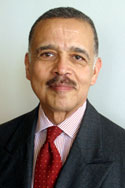ARCHIVES
OF EDITORIALS
December 2, 2004
New strategies needed
African American leaders face a complex dilemma.
After decades of protests against the white power structure they
have inadvertently created a sense of powerlessness among many
blacks. An unintended consequence of those protests, which were
sorely needed, has been to create a class of victims. It is not
possible to be both a victim and in control of one’s destiny.
Now the problem has become how to create a spirit of promise and
hope among those who have fallen into an unproductive state of
mind. The problem is even more complicated because so many blacks
have come to accept their destructive counterculture as normal.
There have been stories about the great successes of African Americans,
but their impact on the culture seems to be lost whenever there
is a story of racial discrimination to report. It appears that
the concept of “the power of positive thinking” has
eluded too many of the people. Only a new message, consistently
delivered, will have any hope of changing the negative mindset.
We live in an age when everyone is inundated with information
from all sorts of media. No matter what positive message is delivered
it will be vitiated to some extent by other messages from a number
of other sources. It is essential, then, for African American
leaders to agree on a message of hope to be oft repeated to inspire
African Americans to “be all that they can be.”
In order for this message to be maximally effective, black leaders
will have to soft pedal the public, emotional opposition to acts
of racial discrimination. This does not mean that such acts are
to be ignored. However, it is more appropriate now for African
American leaders to resolve these issues discreetly so that an
avoidable public protest will not taint the well of enthusiasm
which should be emerging in the black community.
Great skill is needed for leaders to behave in this way. It will
require the adoption of a very different set of talents. There
is always the risk that one who takes this approach will be branded
an appeaser and thus lose some effectiveness; but this must be
perceived as a risk worth taking. It is time for African Americans
to get their own house in order and to worry less about the misbehavior
of whites.
There are various models for executing the proposed approach.
The idea is that many different leaders will be implementing the
policy of developing positive attitudes through a number of agencies
and programs. Since Bennie Wiley has announced her intention to
step down as CEO of The Partnership, this is an appropriate time
to evaluate her achievements at The Partnership as an example
of how the new direction can be effective.
Opposition to school desegregation in Boston created the impression
across the country that Boston was one of the most racist cities
in America. Efforts of major local businesses to recruit a racially
diverse workforce became stymied because competent black applicants
were unwilling to relocate here.
Bennie Wiley became CEO of The Partnership in 1991. Then there
were only 34 participants per year in the program which is designed
for mid- to senior-level professionals. She expanded the scope
of the program to include 160 executives per year. She was able
to increase the number of companies involved, and persuade them
to fund The Partnership by paying a fee for services rendered.
Now only five percent of the budget comes from foundations and
grants.
The Partnership has enabled 1329 African American professionals
to prosper in Boston. By any measure, this is a success. And it
was achieved with diplomacy and great administrative ability.
African American leaders must realize that such strategies, duplicated
in many areas, is the way of the future. The mass demonstrations
so effective in the civil rights era no longer produce the needed
results.
Home
Page

